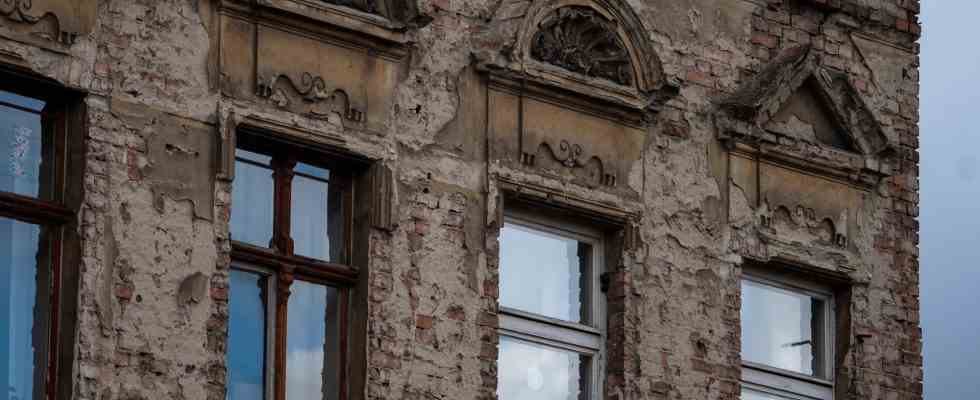Status: 03/14/2023 3:34 p.m
The EU Parliament has voted for stricter requirements for the energy efficiency of buildings. By 2033, all buildings should achieve a medium efficiency class. However, it has not yet been finally decided.
With a clear majority, the European Parliament voted in favor of buildings in the EU consuming less energy in the future. This is a decisive step towards less CO2 and thus towards the climate protection goals of the EU. After all, real estate across Europe caused more than two thirds of all carbon dioxide emissions.
So the building industry must also make its contribution, explained EU Climate Commissioner Kadri Simson. Put simply, Simson said it was imperative that action be taken in this area.
The EU Parliament is planning new minimum standards for the energy efficiency of buildings
Tobias Reckmann, ARD Brussels, daily news at 2:00 p.m., March 14, 2023
Introduction of efficiency classes throughout Europe
The EU Commission had therefore proposed introducing uniform so-called efficiency classes throughout Europe that reflect energy consumption. Measured against this, those properties that are currently the worst performers should be modernized and better thermally insulated first.
By 2033, all buildings should then achieve at least a medium efficiency class in terms of energy consumption. It is also planned that new buildings from 2028 will be built as zero-emission buildings in terms of CO2 emissions.
KfW expects investments of EUR 254 billion
In the parliamentary debate in Strasbourg, Green MEP Jutta Paulus admitted that all of this would be expensive: “Yes, that will require investments.” According to Paulus, the Kreditanstalt für Wiederaufbau is counting on 254 billion euros for Germany: “That’s a lot of money. But may I remind you that 200 billion euros were made available last year for the German gas price brake alone?”
That is why spending on more energy efficiency in buildings is well invested. They relieve house owners and tenants in the long term in the face of rising energy costs and thus contribute to the conversion of society towards independence from fossil fuels and towards climate neutrality. In addition, the EU has already made 150 billion euros available to support this financially.
Homeowners forced to modernize?
There has been some sharp criticism of the project from Christian Democrats and parts of the Liberals: It is tantamount to a modernization compulsion that many homeowners do not want and cannot pay for. It was said that action was not taken with a sense of proportion here, but rather ideologically.
Angelika Niebler, MEP for the CSU, put it this way: “I think we’re really on the wrong track. And I believe that we shouldn’t do climate protection against the interests of the citizens, we have to Take people with us. We must not try to use coercion and bans to appeal to society to fight climate change, we need more intelligent solutions.” Solutions, for example, that reduce the CO2 emissions of buildings in Europe through adapted and expanded emissions trading, not by force.
Negotiations could drag on
However, today’s parliamentary vote has not yet finally decided on the Commission’s proposal. Rather, it is the step towards further negotiations with the member states. These negotiations could well drag on.

